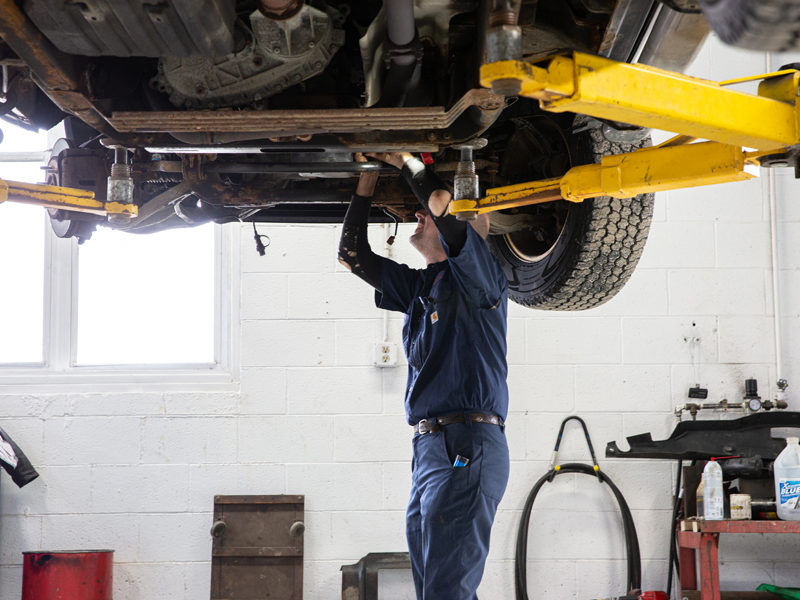
When you own a car, it can be difficult to deal with the repairs that are associated with it. By taking in some information about how to repair an automobile, you may be able to be less stressed out. Apply what you’ve just learned, and you can’t go wrong. When you have a problem, you’ll be better equipped to solve it.
Before dropping your car off for repairs, remove any valuables. The mechanic might need to move these things so they can do the job, and they won’t assume responsibility if anything comes up missing. Empty both the trunk and glove compartment.
Ask your mechanic if he’s worked on a vehicle similar to yours. Though some basic components are similar, the way different models utilize space varies. If you’re unsure about your chosen mechanic’s ability, consider having a dealer repair your vehicle.
Spare Tire
Make sure that you always keep a spare tire and jack in your vehicle. They are usually included when you buy a car. Being stuck without a spare tire and jack means you will have to get your car towed. You can save a lot of money by performing tasks yourself.
Independent mechanics can be great. If they have auto repair experience they can provide quality work, and they will usually charge you less for labor. Next time your car is in need of repairs, ask around for referrals for an unlicensed but fabulous mechanic.
Memorize each light and symbol on your dash instrument panel. When one lights up, it helps to understand what you’re dealing with. These lights give you a good indication of when your vehicle needs some maintenance. If you ignore them, you could end up with expensive problems down the road.
You should still wash your car during the winter time. Although it may seem like a waste of time, winter weather can really damage your vehicle. Salt and sand from frozen streets can cause rust spots and other flaws. Always dry the vehicle off, though, before you take it out for a spin so that the water doesn’t turn into ice.
Find out a little about the car parts you need before you go to a mechanic. There are several different classifications of car parts, and these include salvage, new, and re-manufactured and reconditioned. New means that the parts were made to meet the standard manufacturer specifications by an independent retailer or the dealer themselves. Parts that are rebuilt, reconditioned, and re-manufactured have been restored to good condition. If a used part is designated as “salvage,” it has not been reconditioned.
If you are short on funds and need repairs done on your car, consider taking your vehicle to a vocational school. You will be giving students a learning experience as their teacher looks on to be sure the job is right.
Don’t believe a mechanic who tries to tell you that you need to get your engine flushed as a part of a routine maintenance. This service is very expensive and it isn’t necessary unless you have neglected engine care for some time.
You should be consistent with where you get your car repaired. Stick to a trusted mechanic whom you have used before instead of going to multiple places for repairs. By shopping around different mechanics, you won’t get consistency regarding what your car really needs. Also, you will see that different shops will charge different rates.
While going to a dealer costs more, on average they are going to do a better job. The dealer mechanics are specialists concerning your type of vehicle. In addition, they will better know what can go wrong and thus fix it quicker. They also undergo regular training programs.
Keep an accordion file in the car to keep receipts. You can categorize them however you like as long as you know what is where. This ensures you have the information for your mechanic, insurance or a buyer, if necessary. This is particularly valuable when it is time to sell your car.
If the mechanic provides a quote that goes over $200, get a written estimate. Written proof can prove to be invaluable to settling any disagreement you may have with the mechanic. You will also avoid extra charges when you have a written quote.
Tell your mechanic that he cannot go over a certain dollar amount to repair your car unless he gets your authorization first. If you don’t set a limit, it can invite unwanted and unneeded repairs from unscrupulous mechanics. Ask your mechanic to give you a phone call if he finds more problems that need to be fixed.
When a mechanic repairs your car, ask them for the old parts. Getting the old parts back is a quick test that can confirm work was indeed done on your car. This is unnecessary for certain repairs, such as the replacement of an exhaust system. It’s easy to tell if they have installed a new system.
Ask people you know to recommend a mechanic to you. That helps you to find someone who truly does what they promise. Never use a mechanic who has not performed on any person’s vehicle that you know.
Problems with your automobile can be very annoying, a source of great frustration. They can also be very expensive too. You will save both time and money with a little knowledge regarding car maintenance and repairs.
